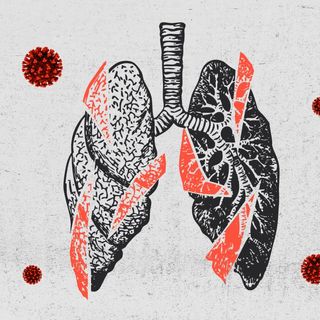A research paper published by an FBI-affiliated organization last year had warned against anti-vaxxers in the context of Covid19-like global pandemics, saying: “The biggest threat in controlling an outbreak comes from those who categorically reject vaccination.“
Published in June 2019 by an in-house journal of InfraGard, which calls itself an “FBI-affiliated nonprofit organization dedicated to strengthening national security” the paper titled: The Anti-Vaxxers Movement and National Security, was jointly written by a health-industry focused security consultant and a senior doctor at Northwell Health in New York. Describing a pandemic scenario eerily similar to the ongoing Covid19 outbreak, the paper discusses how people’s resistance to getting vaccinated could jeopardize prospects of eventually attaining herd immunity against novel, highly infectious pathogens.
Celebrities like Jessica Biel, Selma Blair, and Kristin Cavallari have openly expressed their skepticism about vaccines. Last month, rapper M.I.A. claimed that she would rather die than get for a Covid19 vaccine. In the meantime, people have begun using the argument of individual choice and bodily autonomy to justify their stance against mandatory vaccination. However, rather than being a personal choice, vaccination is part of a social responsibility, shirking which puts others at risk and creates the possibility of life-threatening mass outbreaks. Last year, the WHO had identified “vaccine hesitancy” among the top ten threats to global health.
Related on The Swaddle:
The Truth About Vaccines
The paper, prescient as it may now seem, was criticized after its publication. Civil liberties groups took issue with the links between InfraGard and the FBI, and the fact that the research blames Russian government-aligned organizations for anti-vaxxing movements and misinformation campaigns on social media.
Moreover, “The lack of proper government preparation and stockpiles of medical materials to respond to a pandemic was a much more serious problem than the influence of a relatively small group of anti-vaxxers could ever be,” Michael German, retired FBI agent and a fellow in the Brennan Center for Justice’s Liberty and National Security, told The Guardian. He also voiced his concerns about policy and law enforcement implications of profiling anti-vaxxers as a national security threat based purely on their beliefs.
But the epidemiological reasoning in the paper is worth considering. “Vaccine hesitancy represents a significant threat — not just for any Covid-19 vaccine that might be developed, but also to measures that might assist people and health services now, such as people getting flu vaccinations (sic),” Ben Harris-Roxas, an expert on public health at the University of New South Wales, said.




